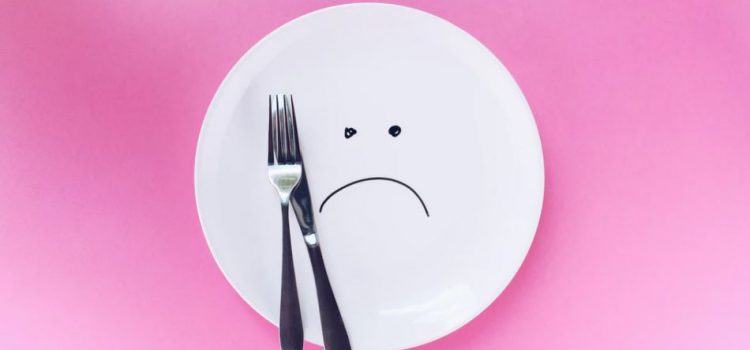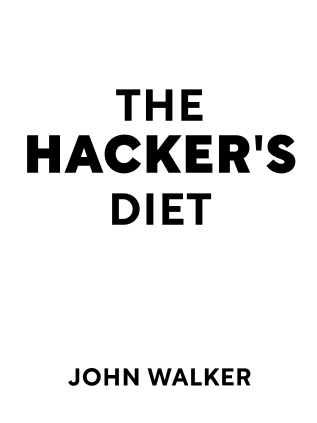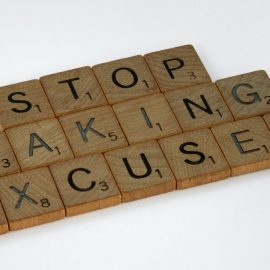

This article is an excerpt from the Shortform book guide to "The Hacker's Diet" by John Walker. Shortform has the world's best summaries and analyses of books you should be reading.
Like this article? Sign up for a free trial here .
Are you trying to lose weight but are having dieting problems? Is your weight loss plateauing? Are you experiencing side effects?
Losing weight is not a straightforward journey—it comes with frustrations, setbacks, and fluctuations. In his book The Hacker’s Diet, John Walker outlines some tips for troubleshooting your weight loss.
Here are some of the most common problems that come with dieting.
Troubleshooting Weight Loss
According to John Walker, here are some of the most common dieting problems with possible solutions:
Day-to-Day Fluctuations in Weight
Don’t use your day-to-day weight as the number you derive self-worth from. As you know, it is almost entirely water influenced by salt. Focus on the trend line. As long as the trend is going down, ignore your daily weight. This means not being disappointed by sudden gains of weight, while also not getting excited about sudden drops of weight.
Plateaus in Weight Loss
You may notice periods when the trend line stalls for a few days. You might be getting through a stable point for your body. Stay with the diet and in a few more days the trend will resume its decline.
Drink Liquids
Drink at least 2 quarts of liquid daily. An easy way to do this is to measure it out in a container, and make sure you drink it by the end of the day. This will help you feel less hungry by filling your stomach, and it’ll also flush out metabolites from your new fat burning.
Constipation and Stool
Your body is used to moving a certain volume of food through your digestive tract a day. When you reduce the volume of food you eat, you absorb a greater percentage of the food you eat, and there is less bulk to move the stool through.
Eating lots of fiber and vegetables is the best way to deal with this.
Side Effects of Weight Loss
By far, the benefits of weight loss outweigh any of the downsides. But there are a few downsides:
- With less fat, your body heat is insulated less well. You’ll tend to get chilled more easily. So wear more clothes.
- Your immune system is weakened during the time you have a calorie deficit (your body conserves energy, and less energy is spent on your immune system). Get a flu shot and practice typical cold prevention hygiene.
- Less fat will make your skin looser and make your veins show more easily. This is also temporary. Your skin is elastic and will adjust over time.
Overall these are mild, temporary downsides during the course of calorie deficit. When you reach your target and resume maintenance calories, your body will adapt again and life will be good.
Lack of Social Recognition of Weight Loss
“Why is no one noticing my weight loss? I wish someone would compliment me.”
Don’t blame people. First off, it’s hard to perceive day to day differences, especially through just your face and your hands, which is typically all that they see of your body.
What will happen is one day someone will say, “hey didn’t you use to be fat?”
In any case, don’t strive for feedback from others — get validation from your weight tracking.
Secondly, many people may actually suspect you’ve lost weight, but out of politeness keep they it to themselves. Imagine if you thought someone lost weight, you asked if they had, and they said, “no” quietly and disappointedly. People want to avoid this awkward situation.
Dealing with Hard Times and Hunger
There will be bad days. Your boss yelled at you, your parents don’t like something you’re doing, your car breaks down — all at once. With all these stressors, it’s hard to stay on goal and not cheat on your diet, going back to your favorite foods.
The worst setbacks often happen late at night. Hours after you eat dinner, you’re hungry again. You’re alone, so no one can help you. You may be around food around the house, so a snack is tempting.
In these times, remember why you’re doing this. You may want to live longer; have better health; avoid terrible complications like heart attacks; accomplish more in life and career; get more social acceptance.
Also, think about why you eat. Are you eating because you want to eat, or are you eating to stop the hunger? Be very careful about this distinction. More often than you think, we eat as a ritual, to stave off boredom, or from social pressure.
Also, think about how you’ll feel after cheating your meal plan. Guilty? Disappointed? Protect your future self from shame by making the strong decision today.
Finally, if you have a predictable time of day when you’re hungry, consider shifting some calories to that time.
Success and Transitioning to Stability
Eventually, your weight will hit your goal. Congratulations! But don’t let off immediately. You need to transition from losing weight to maintaining weight stability.
First, even if you weigh under your target, give yourself a little margin of safety.
- Make sure your trend line is under your target, not that day’s weight. You might have just gotten a lucky dehydrated day that won’t last the next day.
- Next, aim to be 3 pounds below your original target, if you have no trouble continuing the diet. This will protect you from a small bounce up in the transition process.
When you hit these goals, next, don’t immediately add your calorie deficit to your current meal plan. Your body has become more efficient at using limited calories — it’s ramped down your metabolism — and it needs to shift back to burning your food. Transition back over 4 weeks by adding back a quarter of the calorie deficit week by week.
Allow some time for settling. If the trend line is bumping up, then cut back again by a quarter of the calories, then let things stabilize.
Then that’s it. Your diet is finished. Your weight problem is history. The discomfort is over. Next, we’ll cover how to guarantee you’ll never gain back the weight you just lost.

———End of Preview———
Like what you just read? Read the rest of the world's best book summary and analysis of John Walker's "The Hacker's Diet" at Shortform .
Here's what you'll find in our full The Hacker's Diet summary :
- An engineer’s approach to weight loss
- Why losing weight is so hard even though it's so simple
- What you have to do to maintain your ideal weight for the rest of your life






